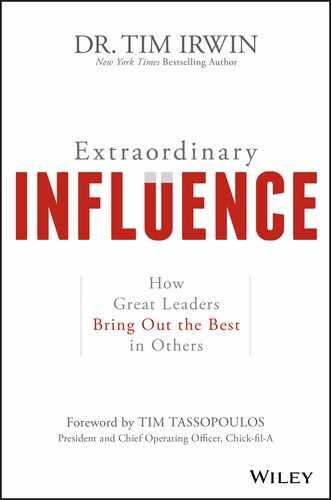12
What Would Happen If We Put This into Practice?
A Call to Action
As a citizen of the United States, I have become somewhat dismayed in recent years about the level of divisiveness and dysfunction in our country. Whether politicians, journalists, celebrities, or just the general populace, criticism flourishes and affirmation languishes. How we arrived at this state invites rigorous debate, but the more important question is how do we restore respect, civility, and unity as a country? While I cannot speak with authority, I suspect the same questions plague other nations, as well.
Following 9/11, I was struck by the increase in simple courtesies. Small things like friendlier greetings, holding doors open for others, allowing someone to merge into traffic, and other acts of kindness seemed to rule the day for a few months. We had been humbled as a nation, and it showed. We became nicer people for a while. Against the painful darkness of the assault on our people, there was also a civic kindness not seen in a long while.
Entropy eventually set in, and gradually, we returned to our pre-9/11 preoccupation with our normal lives. Civility seems more difficult for busy people who haven't been humbled recently.
This book asserts that certain actions bring out the best in others, while others bring out the worst. Wouldn't we like to see a lot more bringing out the best in each other? I have expressed many opinions throughout the book, but the major tenants of Extraordinary Influence rest upon solid scientific research. For example:
- Affirmation produces tremendous benefits—physically, emotionally, and socially.
- Criticism creates tremendous problems—physically, emotionally, and socially.
- What I labeled Alliance Feedback allows us to correct wayward behavior without setting off some of the problems associated with criticism. We connect a person's need to change with important aspirations relevant to the recipient of our feedback.
Most of my workdays are spent in the corporate world. What would happen if we put these principles into practice in the corporate world?
What would happen if we applied these principles more broadly?
My opinion is that:
The research I referenced throughout the book is prescriptive for individuals; however, we as a society would be much more likely to flourish if we became more affirming and less critical. Just imagine that post-9/11 period, except that it's better and it's sustainable.
Think about the amazing world we could create for our organizations, our families, and our communities if affirmation flowed freely and criticism became rare. I keep hearing that we must come together as a country, although to date, I haven't heard anyone say exactly how we're to do that. My answer is, let's just start by making a lot more affirming statements and a lot less diminishing ones.
What if we flipped our normal use of criticism and affirmation—we affirmed people every day and made critical comments a lot less often?
Of course, this notion may require a few clarifications:
- Not all ideas are good—we can evaluate ideas and initiatives and throw out the bad ones. I'm not saying this is Happy World, where we do everything someone wants to do at work.
- Despite what I've heard from many people to the contrary, there actually are dumb questions. It's okay not to spend resources answering those.
- Not all people are affirmable. Although my grandmother Goldie did like to say, “Nobody's worthless. At least they can be used as a bad example.”
With all this in mind, the following is my call to action:
What if we started speaking Words of Life with much greater frequency to members of our family, some of our colleagues at work, and occasionally to a random person we meet?
What if we acknowledge that there is an unlimited supply of affirmation and there is no law that we ration it?
I invite you to join others in voting for a worldwide ban on the phrase, constructive criticism. You can do so at www.drtimirwin.com
Please also join the discussion on my website about how we can affirm more and criticize less.
